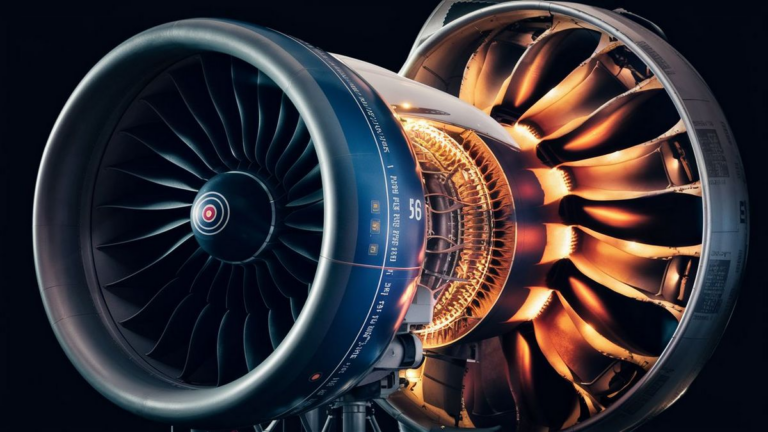When it comes to the Boeing 747-8, one of the most crucial components that contribute to its remarkable performance is its engine system. The Boeing 747-8 is equipped with advanced engines that ensure optimal efficiency, power, and reliability throughout its operations.
Engine Specifications
The Boeing 747-8 is powered by four engines, each of which plays a vital role in providing the necessary thrust to propel this iconic aircraft through the skies. These engines are designed to deliver exceptional performance while meeting stringent safety and environmental standards.
Manufacturer
The engines used in the Boeing 747-8 are manufactured by General Electric (GE) and are part of the GE GEnx family of engines. These engines are renowned for their cutting-edge technology and innovative design, which enhance fuel efficiency and reduce emissions.
Thrust
The engines on the Boeing 747-8 are capable of producing a significant amount of thrust, allowing the aircraft to carry heavy payloads over long distances with ease. This ensures that the Boeing 747-8 remains a preferred choice for airlines operating on intercontinental routes.
Key Features
The engines powering the Boeing 747-8 boast several notable features that contribute to their overall performance and reliability.
- Fuel Efficiency: The engines are designed to maximize fuel efficiency, helping airlines reduce operating costs and minimize their environmental footprint.
- Reliability: With a proven track record of reliability, the engines ensure smooth and trouble-free operations for airlines around the world.
- Advanced Technology: Incorporating state-of-the-art technology, the engines deliver superior performance and meet the latest regulatory requirements.
Performance
The engines on the Boeing 747-8 are optimized for performance across a wide range of operating conditions. Whether it’s takeoff, climb, cruise, or landing, these engines deliver consistent power and efficiency, ensuring a comfortable and efficient flight experience for passengers and crew alike.
Efficiency
One of the standout features of the engines powering the Boeing 747-8 is their exceptional fuel efficiency. By burning less fuel per unit of thrust generated, these engines help airlines reduce their operating costs and carbon emissions, making them a sustainable choice for long-haul travel.
Power
Despite their fuel efficiency, the engines on the Boeing 747-8 are incredibly powerful, providing the aircraft with the thrust needed to operate efficiently even under demanding conditions. This ensures that the Boeing 747-8 can take off and land on shorter runways while carrying maximum payloads.
The engines powering the Boeing 747-8 are a testament to the ongoing advancements in aviation technology. With their combination of fuel efficiency, reliability, and performance, these engines ensure that the Boeing 747-8 remains at the forefront of long-haul air travel for years to come.
Environmental Impact
Aside from fuel efficiency, modern aircraft engines like those on the Boeing 747-8 are designed to minimize their environmental impact in various ways. This includes reducing emissions of greenhouse gases and other pollutants, as well as mitigating noise pollution through advanced engineering and design.
Emissions Reduction
The engines on the Boeing 747-8 incorporate advanced technologies such as high-pressure turbine stages and improved combustor designs to minimize emissions of carbon dioxide (CO2), nitrogen oxides (NOx), and other pollutants. This helps airlines meet regulatory requirements and reduce their overall environmental footprint.
Noise Reduction
In addition to emissions, noise pollution is a significant concern for airports and communities near flight paths. The engines on the Boeing 747-8 are engineered with features like advanced acoustic liners and optimized fan designs to reduce noise levels during takeoff and landing, improving the overall environmental impact of the aircraft.
Maintenance and Lifecycle Costs
Another crucial aspect of aircraft engine performance is maintenance and lifecycle costs. Airlines need engines that not only perform well but also minimize maintenance requirements and associated expenses over the lifetime of the aircraft.
Maintenance Requirements
The engines used on the Boeing 747-8 are designed for reliability and durability, which translates to reduced maintenance needs compared to older engine models. Advanced materials, digital monitoring systems, and predictive maintenance algorithms help airlines optimize maintenance schedules and minimize downtime.
Lifecycle Costs
While the initial purchase price of aircraft engines is significant, airlines also consider the long-term lifecycle costs when selecting engines for their fleet. The engines on the Boeing 747-8 offer competitive lifecycle costs thanks to their fuel efficiency, reliability, and streamlined maintenance requirements, making them an attractive choice for airlines seeking to minimize operating expenses.
Frequently Asked Questions
| Question | Answer |
|---|---|
| Are the engines on the Boeing 747-8 efficient? | Yes, the engines are designed for optimal fuel efficiency, helping airlines reduce operating costs and environmental impact. |
| Who manufactures the engines for the Boeing 747-8? | The engines are manufactured by General Electric (GE) and belong to the GE GEnx family of engines. |
| How do the engines on the Boeing 747-8 contribute to environmental sustainability? | The engines incorporate advanced technologies to minimize emissions and noise pollution, improving overall environmental performance. |
| What factors influence the selection of engines for long-haul aircraft like the Boeing 747-8? | Factors such as fuel efficiency, reliability, performance, maintenance requirements, and lifecycle costs are critical considerations for airlines. |
See also:






